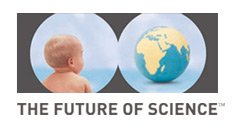Edward Dove

Edward (Ted) Dove is a Wellcome Trust-funded PhD candidate at the University of Edinburgh School of Law (supervisor: Graeme Laurie), where he is researching from a socio-legal perspective the role of research ethics committees in health research regulation. From 2011 until 2014, he was an Academic Associate at the Centre of Genomics and Policy at McGill University in Montreal. He holds a Bachelor of Arts degree (BA) in Political Science and Civil Law and Common Law degrees (BCL, LLB) from McGill, and a Master of Laws degree (LLM) from Columbia University in New York City. Ted’s primary research interests are in the areas of research ethics oversight, data privacy regulation, data access and sharing, governance of international research collaboration, genomics public policy, and socio-legal studies of genetic and omics technologies. He is Section Editor at BMC Medical Ethics, a peer-reviewed open access journal, and an Editorial Board member of OMICS: A Journal of Integrative Biology. He is also a member of the International Cancer Genome Consortium’s (ICGC) Working Group on Identifiability, and is a member of the Regulatory and Ethics Working Group of the International Society for Biological and Environmental Repositories (ISBER). From 2013-2015, Ted served as Coordinator for the Regulatory and Ethics Working Group of the Global Alliance for Genomics and Health.
Big Data meets Big Science and Big Ethics: Emerging Trends, Regulatory Challenges and Opportunities for Engagement
The global bioeconomy is generating new paradigm-shifting practices of knowledge co-production, such as collective innovation, large-scale global science and consortia ethics (what may be termed Big Science and Big Ethics). At the same time, there is growing international agreement on the need to provide greater access to health-related data and bio-specimen collections to optimize their long-term value and exploit their potential for health discovery and validation. Health gains can be achieved more comprehensively and quickly by combining and mining large, information-rich datasets from across conventionally siloed disciplines and geographic areas (Big Data). While collaboration for data and bio-specimen sharing is increasingly embraced by policymakers and the international biomedical community, until recently we have lacked a common ethical and legal framework to connect regulators, funders, consortia, and research projects so as to facilitate genomic and clinical data linkage, global science collaboration, precision medicine, and responsible research conduct. Governance tools can be used to responsibly steer the sharing of data and bio-specimens for proper stewardship of research discovery, genomics research resources, and their clinical applications. In this presentation, I discuss the work of the Global Alliance for Genomics and Health, which has developed a Framework for Responsible Sharing of Genomic and Health-Related Data to enable global data sharing for biomedical research. The Framework is explicitly situated within a human rights framework, invoking in particular the long-standing but also long-neglected ‘human right to science’. I also discuss the recently published International Charter of Principles for Sharing Bio-Specimens and Data, largely developed through RD-Connect, which intends to overcome access and sharing obstacles by providing both the ethical foundations on which data sharing should be based and a general Material and Data Transfer Agreement (MTA/DTA).





